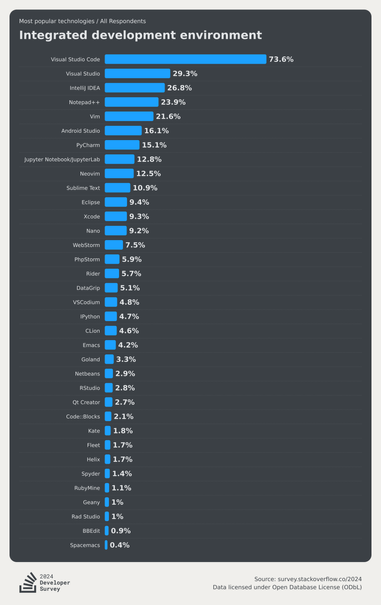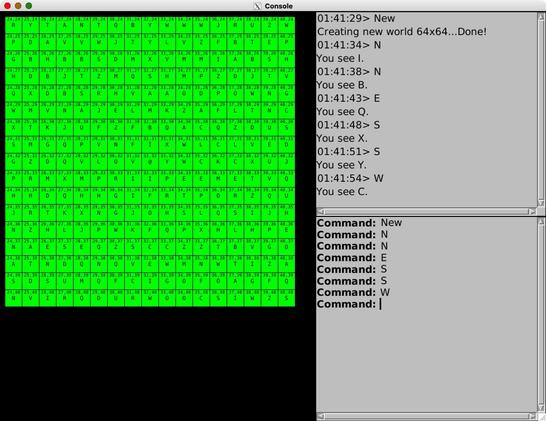@screwtape
I'm listening to this week's #LispyGopher show on "tape". Thanks for the mentions of my work. You were somewhat apologetic about trying to interpret my words, but inevitably words DO get interpreted. No worries.:) What you said was in range, though I'll add some nuance:
You mentioned the issue of how the climate discussion would be affected by having better access to education. It's not that I mind that people look to community leaders who are well-educated. We need such leaders. But it should be the OPTION of any citizen to be personally well-informed so that they are not reduced to only trusting others.
My general feeling on education is that it should be more central and more available. It's odd because we're a much wealthier society than we allow ourselves to see. We allow riches to pile up in just a few people, with mostly ill effect in my opinion. With a few million dollars, one starts to think of starting companies. With billions, one wonders what one can even do, and it's almost inevitable that one tries to meddle with whole countries. What, other than politics, exists at that kind of monetary scale. But is that something we WANT people to be doing?
The rich disdain most others, who they seem to regard as less educated, capable, or worthy. But why is that? Could it be we've invested less in those people? The rich would say those people should invest in themselves, but the hard problem is getting an initial stake.
We loan money, but through banks. Why? Governments could directly loan money. It's not like they don't have access to money. Moreover, they don't have to worry about collection. They're already set up to collect taxes. Putting banks in the middle is pure gift to the banks. It has no function but to allow friend-bankers to extract profit, which makes loans inefficient and reduces whole populations to debt service needlessly, all on a claim that the banks have to protect themselves from financial risk by higher interest rates, something the government would not have to protect itself from. An entirely contrived problem.
Also, we live in a society where we've gone from human labor to manufacturing, but with ever more automation. And normally people have moved to other jobs as this happens. But with AI, which is more able to pivot quickly than people, the AI will be displacing workers everywhere, except those especially well-prepared educationally. It will gobble up the low end. And business is anxious to do that. It hates human labor. The negotiations, the insurance, the benefits, the whole of it. AI is all about cost-cutting (people-cost cutting).
Meanwhile people get themselves into debt for whole lifetimes just learning one thing, only to find it's not a job skill anyone needs any more. Then what? Education needs to be free because we need retraining faster than most can afford.
And anyway we need it politically because the modern world is more and more complicated, so more and more a victim of Clarke's Third Law, "Any sufficiently advanced technology is indistinguishable from magic." (https://en.wikipedia.org/wiki/Clarke's_three_laws#The_laws). But we should not, any more than we're forced to, treat the world as full of only magic. We should try to keep up.
It's pointless to have a democracy where everyone gets a vote if the people are voting on information that is not transparently available, whether that information is fair and balanced news reporting or is proper understanding of science or history or art or whatever is affecting them. If you don't understand the question on a ballot, you might as well not have a vote. So education is central there, and to say that only the rich can have an education is to talk about the most severe kind of "poll tax" (https://en.wikipedia.org/wiki/Poll_taxes_in_the_United_States) you could possibly imagine.
And, finally, I think there are a lot of things that political conservatives would like us to view as taxes on society. Expenditures are not always taxes, or even what I think of as expenses. An investment is not an expense in the sense of money spent that is just gone. Spending money on education isn't like spending money on a solid gold toilet or a spare yacht. It's something meaningful that helps the world. So it transforms value stored in money to value stored in other ways (and without even destroying the money in the process--now there is some "magic" worth learning about).
But what I'm saying in all-too-roundabout a way is that educating people isn't a gift we give privately to a person that only benefits that person. It's a gift we give ourselves. Because to live in a society of educated people is to enable the best work of SO MANY people who now waste away their lives on pointless small jobs just to make ends meet. Imagine how many of them would be writers, inventors, doctors, etc. if only they could afford it.
If everyone in the world were well-educated, how would that improve our chances against the Climate Crisis?
#climate #education #StudentDebt #debt #AI #unemployment #LispyGopher

